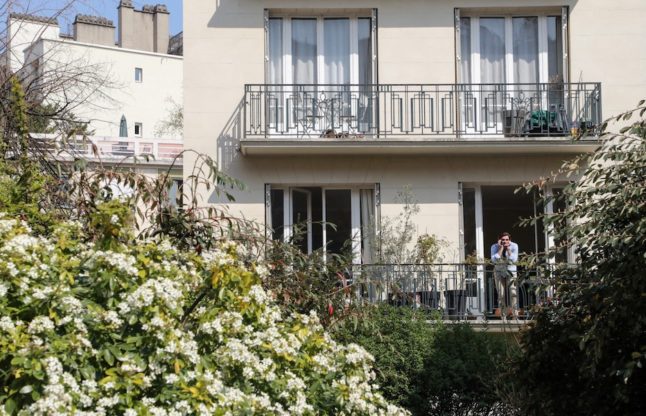If you’re living in France and you’re not a French citizen, there are certain scenarios in which you can be expelled from the country, and although this isn’t an everyday occurrence there are quite a wide range of offences that can see you kicked out of France.
Process
In France, there are a few different deportation procedures for foreigners.
Expulsion – The first, which you may have heard about before, is “expulsion”, which means you must leave the country immediately.
French Interior Minister Gérald Darmanin recently made headlines after calling for the expulsion of an Imam for making anti-Semitic, homophobic and sexist comments, as well as speeches that were “contrary to the values of the Republic.”
For the average person, being expelled from France is very unlikely.
Under president Nicolas Sarkozy, a 2003 law was passed allowing for three possibilities to expel foreigners who are already “integrated” into France – if they have engaged in “behaviours likely to undermine the fundamental interests of the State; that are linked to activities of a terrorist nature; or constitute acts of incitement toward discrimination, hatred or violence because of the origin or religion of persons.”
In most cases though, “expulsion” only occurs if a person is living in France illegally (ie without a residency permit or visa) and they represent a “serious threat to public order.”
Notice to quit – The more likely scenario for the deportation of a foreigner living in France is an OQTF (Obligation de quitter le territoire français) – an obligation to leave France.
The decision is made by your préfecture. You will be formally notified, in a document which outlines which country you are to return to, as well as the time limit for when you must leave France.
This can occur following a prison sentence, or if your residency permit has been withdrawn (again, the most common scenario is following a criminal conviction) or if your application to renew a residency permit has been denied.
You can challenge an OQTF. In most cases, the administrative court responsible for handling appeals should offer a response within six weeks.
Barred from returning – if you have committed an immigration offence such as overstaying your visa or overstaying your 90-day limit, this is often only flagged up at the border as you leave France. In this circumstance, you are liable to a fine and can also be banned from returning to France. Bans depend on your circumstance and how long you have overstayed, but can range from 90 days to 10 years.
In practice, being barred from returning is the most common scenario for people who have overstayed their visa or 90-day limit, but have not been working or claiming benefits in France.
You can be ordered to leave France within 30 days if you are in one of the following situations:
- You entered France (or the Schengen area) illegally and you do not have a residency permit or visa. You can be immediately ordered to leave France under specific scenarios such as representing a threat to public order or being a “risk of fleeing.”
- You have entered France legally, but you have overstayed your visa or overstayed your 90-day limit. If you stay more than 90 days in every 180 in the Schengen area without a valid residency permit, then you can receive an OQTF, although in practice this is not the most common response.
READ MORE: What happens if you overstay your 90-day limit in France?
- Your residency permit application or your temporary residence permit has not been renewed or has been withdrawn.
- Your residence permit has been withdrawn, refused or not renewed or you no longer have the right to stay in France (more on this below).
- You failed to apply to renew your residency permit, and stayed after the expiration of your previous permit. Keep in mind that once your permit expires, you can stay an additional 90 days in France if your home-country does not require a 90-day visa. However, in order to do this you must exit the Schengen zone and come back in to re-start the clock.
- You are working without a work permit and have resided in France for less than 3 months. A scenario where this might apply would be coming to France for under 90-days as a tourist (ie without a visa) and take a seasonal job. If you are found to have done this, you can receive an OQTF.
- Other scenarios include being an asylum seeker whose application for protection was definitively rejected, or being categorised as a threat to public order (for those who have resided in France for less than 3 months).
Why might my residency permit be withdrawn or refused?
For those with a valid temporary or multi-annual residency permit, you might have your titre de séjour withdrawn in any of the following scenarios:
If you no longer meet one of the necessary conditions for obtaining the permit in the first place. Keep in mind that if you have a salarié residency permit or a passeport talent, these cannot be withdrawn if you become “involuntarily unemployed” (meaning – you do not need to worry about potentially being deported if you lose your job). The best advice for this would be to request a change of status as needed rather than staying on a permit that no longer applies to you.
If you did not fulfil all the criteria for renewing your permit – this could involve failing to appear for an appointment you have been summoned to by the préfecture.
If your permit was issued on the basis of family reunification, you could lose your titre if you have broken off your relationship with your spouse during the 3 years following the issuance of the permit. This does not apply in the case of death or spousal abuse, and there are exceptions for couples who have children settled in France.
Other reasons might include:
- Living in a state of polygamy in France
- Serious criminal conviction (drug trafficking, slavery, human trafficking, murder etc.)
- Illegally employing a foreign worker
- Having been deported or banned from French territory previously
- Being a threat to public order (usually terrorism related)
If you have a residency card, you can also lose your right to residency if you are out of France for a period of between 10 months and two years – depending on the type of card you have.



 Please whitelist us to continue reading.
Please whitelist us to continue reading.
Member comments